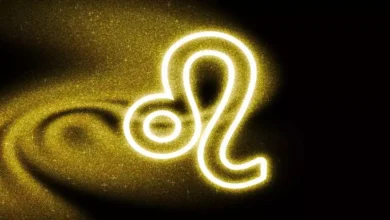‘No Termination in First Trimester’ Policy Introduced by IIT-Kanpur for Postgraduate Students in Response to Mental Health Issues
In an effort to reduce stress among postgraduate (PG) students, the Indian Institute of Technology (IIT)-Kanpur has implemented a “no termination based on first semester performance” policy. The regulation, which is one of the significant academic changes to take effect in the wake of a recent wave of student suicides on campuses, will go into effect in July when classes resume.

Three occurrences occurred on campus between December 19, 2023, and January 18, this year, at one of the first generation of IITs. Among them were the purported suicide deaths of two research researchers and an MTech student. In one instance, the event happened soon after the student received a notice of termination from the institution, and he was unable to file an appeal against it in time.
The IIT-Kanpur dean of academic affairs, Professor Shalabh, states that the “no-termination policy in first semester” would take effect in July of this year. According to the institute’s decision, no student will be dismissed for failing a course due to their cumulative point index (CPI) during the first semester; instead, they will be given another opportunity to meet the requirements. This would give students the time they need to raise their CPI without worrying about it, he said.
He did, however, clarify that if a student continues to perform below expectations even in the second semester, they would be terminated in accordance with the guidelines. However, even after being terminated, students have the opportunity to appeal the decision to their faculty, and the termination is subsequently reversed if it is deemed suitable.
AFTER PROTESTS, THE POLICY
Following the third suicide in January, students staged demonstrations on campus, calling for a number of academic changes, such as transparent grading, biannual evaluations, and the creation of an ombudsman panel comprising professors, an outsider, and student representatives, among other things.
After the demonstrations, the institution hosted an Open House for students, during which the requests were made in writing. The institute agreed to some of these proposals in principle, and committees were formed to work on the issues raised. The institute’s Senate, the highest academic decision-making body of an IIT, must decide on each policy before they may become enacted changes.
A top faculty member said, “We are working on several academic reforms that will be introduced once the Senate approves them.”
According to an internal poll of PG students conducted by the student body on campus last year, at least 80% of those pursuing research programs had mental health problems, and 60% had considered quitting at least once throughout the course of the program.
WHAT PEOPLE THINK OF THE POLICY
Although the management of the school agreed to certain modifications, student representatives from several welfare committees on campus said that they have not yet been put into practice.
Students who had previously completed their first semester earlier this year were likewise attended to with regard to the no-termination policy. The administration had written to several departments, requesting that any students who were placed on warning not be terminated. Beginning in July, new students will profit from this arrangement, a postgraduate student said on condition of anonymity.
The PG student said, “Any student who is dismissed immediately after the first semester shatters not only their own dreams, but also the dreams of their family.” Many people who are affiliated with IITs find it disheartening since they have a history of doing well in school and are abruptly dismissed due to their inability to complete a course within a semester. Sometimes after starting a new project, mentors and students get stuck and are unable to arrive to the study conclusions, but in the end, the student has to deal with being fired,” the student said.
The first semester test results are released in December, and PG admissions are completed in July.
RESEARCHING FOR REFORMS
Student leaders claim that although some of these are in the advanced stages, several fundamental improvements are being worked out to assist enhance the mental health of students. A research scholar stated, “In order to increase transparency in the grading system for research scholars, it is planned that students will write a brief report or summary at the end of each semester detailing their work, and the mentors while grading will have to write their comments on why they decided on a particular grade to a student.”
At the moment, the guide’s standard procedure for research programs is to simply provide a “S” (satisfactory) or “X” (non-satisfactory) mark based on the student’s performance.
An internal evaluation for PhD candidates that includes the creation of a “monitoring panel” for each research scholar is another change being worked on. Experts in the subject who are faculty members but not from the same department will be on the panel. Every six months or a year, PhD candidates will have to give a presentation of their work to the panel for a certain amount of time. Following this, the panel will provide comments. The financing for a research project is examined every semester in many American and some European colleges, according to another research specialist.
In India, a set salary is given to PhD candidates for the whole five-year program.







